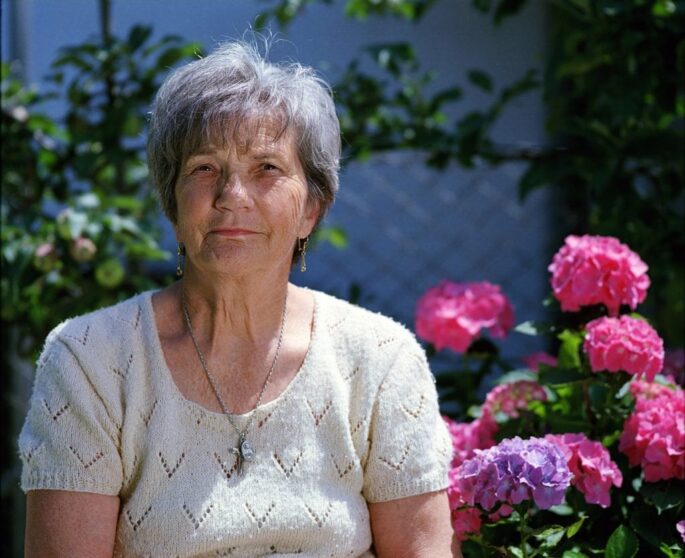Eskaton FountainWood, a Sacramento nursing home, is being held responsible for its direct role in the abuse and subsequent death of resident Barbara Lovenstein. Barbara died due to health complications from being routinely drugged with Ativan by Eskaton FountainWood’s staff. The jury sided with the plaintiff’s family, finding that Eskaton FountainWood must pay $42.5 Million in the nursing home abuse lawsuit.
Staff Administered Ativan Despite Doctor Directions Not To
Barbara was initially admitted to Eskaton FountainWood for short-term rehabilitation, diagnosed with dementia and occasional seizures. Barbara had an Ativan prescription to help with the seizures and was only supposed to receive the medication for seizure-like activity.
Instead, staff began to administer Ativan every morning at 6 am, claiming Barbara needed it to reduce her agitation.
When the staff brought a routine Ativan prescription request to Barbara’s family doctor, he denied the request. But Eskaton FountainWood staff ignored the physician’s orders and continued to administer Ativan to Barbara daily.
Fifteen days after the doctor denied the request for Ativan, Barbara’s sister, Jean, got involved. Jean was Barbara’s previous caretaker and was concerned about Barbara’s overall health, so she took Barbara to see the doctor. When Jean arrived at the home to pick her sister up for the appointment, Barbara was limp and unable to walk. Barbara also didn’t recognize her sister or doctor during the visit.
Victim’s Fatal Pneumonia Linked to Over-Medication
Two days after the doctor’s visit, Jean returned to Eskaton FountainWood to discharge Barbara and take her home. While packing up Barbara’s belongings, Barbara was given chicken nuggets for lunch and began to choke. Jean immediately took Barbara to Sutter Roseville Hospital, where she was unable to drink water and repeatedly coughed up her lunch.
Barbara was diagnosed with aspiration pneumonia, caused when weakened muscles allow food to enter the lungs instead of the stomach.
Barbara was discharged after six days in the hospital, only to die two weeks later from the aspiration pneumonia.
Sedative Use Commonplace in Nursing Homes
The use of Ativan and other sedatives is common in nursing homes. To staff, medicated patients are more compliant and agreeable. Too many nursing homes see pharmaceuticals as a simple solution when they don’t have the staff or resources to care for the elders properly. Staff will claim that the drugs are meant to calm or comfort elders, but the truth is that drugs make patients easier to manage.
“The basic problem was that Eskaton FountainWood was insufficiently staffed and could not meet the needs of the residents. Drugs are then used which is considered chemical restraints to control the residents so that staff does not have to deal with them,” said Carole Herman, president of the Foundation Aiding The Elderly.
Patients in nursing homes are often interpreted as disruptive when they are in pain or express emotional distress, making it far too easy for overworked staff to use sedatives as chemical restraints.
Many sedatives and psychotropic drugs are used as a chemical restraint, but Ativan is a common choice. Ativan is a black box drug—it requires careful administration and can be extraordinarily damaging when misused. Barbara Lovenstein’s tragic case is proof of that.
Nursing Home CEO Accepts Limited Responsibility
Eskaton FountainWood’s CEO, Todd Murch, acknowledges there was a medication error involved in this nursing home abuse lawsuit but did not take full responsibility for the nursing home’s actions. He did not seem concerned about the nursing home’s future, despite the lawsuit’s verdict and significant financial penalty.
“My message to employees is we need to be open and transparent about what’s occurring, but we should all be proud of what we do. Eskaton will survive and continue to provide services for a long time to come in the Sacramento area,” said Todd.
Unfortunately, this sentiment falls short. Todd failed to address the egregious misuse of drugs for behavioral control and the staffing issues that resulted in Barbara’s death. He also didn’t indicate any changes Eskaton FountainWood would make to protect elders and prevent future deaths as a result of this nursing home abuse lawsuit.
Instead, Eskaton reassured its team that it would survive the $7 million in compensatory damages and the $42.5 million in punitive damages.
Elders in nursing homes are often unable to stand up for themselves when they are abused. If you’re concerned about medication misuse or facility treatment that has led to severe injury or death, please act now. Contact Nursing Home Abuse Justice, and we’ll guide you through your next steps.

